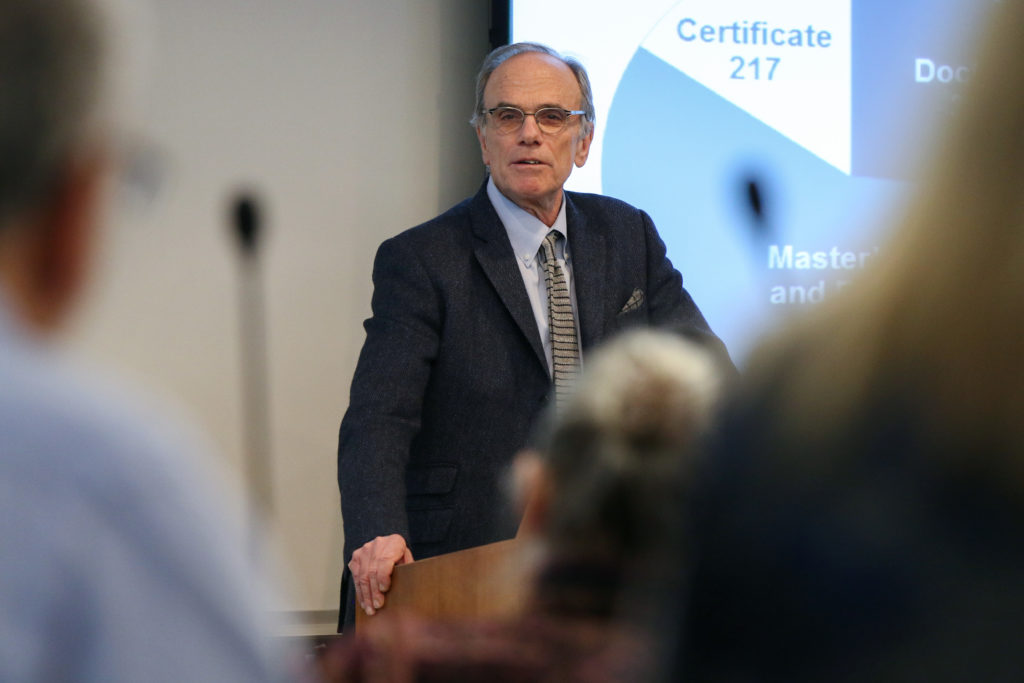The Graduate School of Education and Human Development has built up a strong set of faculty, improved its research profile and ramped up fundraising efforts – even with a limited budget, the school’s dean said.
Michael Feuer, the dean of the school, said at a Faculty Senate meeting Friday that the school has faced several challenges over the past few years, including a slight dip in enrollment and a lack of community space for GSEHD students and faculty. But he said the school has worked around its obstacles and continued to prioritize diversity, salary equity and the University’s long-term goals of bolstering research and science programs.
“The fact we are comprehensive going from pre-K to post-everything, the fact we are devoting so much attention to research, coupled with our interests in STEM and in the new large-scale data analytics programs, we are very much aligned with the University’s long-term strategic vision,” he said.
He said the school has learned to maximize a limited budget, and officials hope to create new fundraising strategies in the coming months, but he did not specify what the plans include.
“In terms of space, there’s currently no plan other than to aspire to more philanthropy and more funding that might enable us to get some better space,” he said.
Feuer said enrollment has slightly dipped this year to about 1,340 students – a few hundred less than previous years.
“On one hand I worry a little bit about it, but on the other hand I take it as an important signal that we can learn about,” he said. “And my experience here even in the nine years that I’ve been here is that these things do go a little bit up and down, but we’re holding steady.”
He said the school has also looked closely at salary equity during the past two years, and the school has increased the percentage of faculty who are now earning compensation that is “respectable” in comparison to peer institutions.
“We had to devote some of our hard-earned savings, and we made sure that people who were vulnerable to this kind of salary inequity, that we paid extra attention to their performance, to their productivity and to what they were doing, and in cases where the productivity and performance warranted, we made an even bigger boost,” he said.
He said the school continues to prioritize diversity and gender balance, which he said both need work but are on track with peers. Women make up about 77 percent of GSEHD’s student population, while minority groups comprise about 45 percent, according to institutional data.
“We take the business of diversity and equity and inclusion as an ethos, a thread, that runs through everything we do,” he said.





